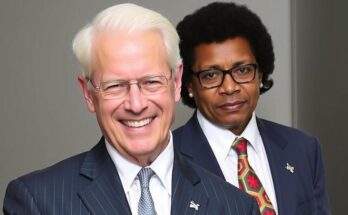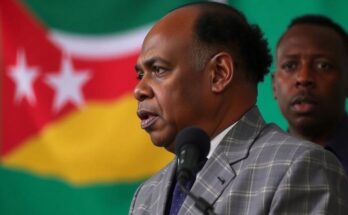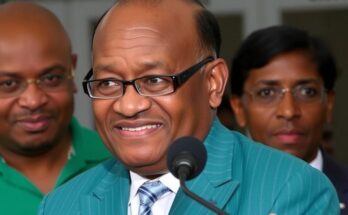Professor Jeffrey Haynes of Metropolitan University asserts that with Ghana’s general election imminent, voters are more concerned with economic issues like living costs and unemployment than with the anti-LGBTQ bill. He suggests that the latter is a distraction from significant governmental failures as Parliament presses ahead with the bill’s approval despite previous reservations from the President.
With the general election in Ghana just 24 days away, Professor Jeffrey Haynes, a political analyst at Metropolitan University in the UK, posits that voters will prioritize economic issues over social concerns, particularly the anti-LGBTQ bill. During the ‘Kronti ne Akwamu’ lecture series, he emphasized the significance of prevailing economic difficulties, such as escalating living costs and youth unemployment, as pivotal factors in shaping voter preferences. He remarked that voters are likely to focus on employment prospects and governmental integrity amidst current crises, stating, “They (Ghanaians) will think about price rises, employment prospects for young people, graduates and so on. They will want a government that will work in an incorrupt, clean and transparent way.” Moreover, he dismissed the anti-LGBTQ bill as a distraction from more pressing governmental failures, suggesting that it has been artificially highlighted to divert attention from the administration’s shortcomings. The legislative body has recently urged President Nana Akufo-Addo to sign the bill, despite his previous insistence on waiting for a Supreme Court ruling concerning its constitutionality. This context illustrates the political landscape where socio-economic factors are projected to play a decisive role in the upcoming elections in Ghana.
Amid the upcoming general election in Ghana, the socio-political landscape is saturated with issues that influence voter priorities. The focus on economic challenges reflects the realities faced by many Ghanaians, particularly with rising living costs, high unemployment rates among the youth, and problems relating to illegal mining practices. These challenges are perceived as immediate threats that impact daily life, overshadowing social issues like the anti-LGBTQ bill. This situation is further intensified by the Parliament’s recent recommitment to the anti-LGBTQ bill, raising questions about its actual significance in the political discourse leading up to the election.
In summary, as Ghana approaches its general election, economic concerns are projected to be the primary drivers of voter sentiment, eclipsing social issues such as the anti-LGBTQ bill. Professor Haynes’ observations underline the prioritization of government accountability and economic stability over legislative matters deemed secondary. This prevailing attitude among voters suggests that the focus will remain on essential reforms aimed at improving living conditions and employment for the youth, rather than on divisive social issues.
Original Source: www.ghanaweb.com




